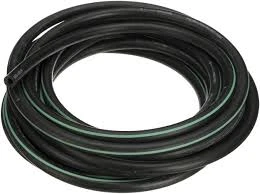flexible fuel line automotive
Oct . 10, 2024 15:42 Back to list
flexible fuel line automotive
Understanding Flexible Fuel Lines in Automotive Applications
In the modern automotive industry, the significance of flexible fuel lines cannot be overstated. These essential components play a crucial role in fuel delivery systems, contributing to vehicle efficiency, performance, and safety. As vehicles evolve, the technology and materials used in these fuel lines have advanced tremendously, ensuring they meet stringent safety and environmental standards.
What are Flexible Fuel Lines?
Flexible fuel lines are specially designed tubes that transport fuel from the tank to the engine or other fuel-utilization components. Unlike rigid fuel lines, which can be prone to cracking or breaking under stress, flexible fuel lines are constructed from materials that allow them to bend and flex without losing structural integrity. This flexibility enables easier installation in the confined spaces of modern engines and facilitates the absorption of vibrations and movements generated during vehicle operation.
Materials Used in Flexible Fuel Lines
Flexible fuel lines are typically made from synthetic elastomers, plastics, or a combination of both. Common materials include
1. Rubber Traditional fuel lines were often made of rubber, which is resistant to fuel but can degrade over time with exposure to ozone and environmental factors. 2. Thermoplastic Elastomers (TPE) These materials provide enhanced flexibility and resistance to fuel and oil. TPEs combine the processability of plastics with the elasticity of rubber, allowing for lightweight and durable fuel lines.
3. Polyamide (Nylon) Known for its high resistance to heat and chemicals, nylon is often used in fuel lines, particularly in high-performance applications.
Advantages of Using Flexible Fuel Lines
flexible fuel line automotive

1. Ease of Installation The flexibility of these lines allows for straightforward routing in complex engine layouts, minimizing the need for tedious bending and shaping found in rigid metal tubing.
2. Vibration Dampening Modern engines generate a significant amount of vibration. Flexible fuel lines have the ability to absorb these vibrations, which helps minimize wear and tear on both the lines themselves and the fittings to which they are connected.
3. Resistance to Corrosion and Fractures Flexible fuel lines are designed to be resistant to various fuels and environmental factors, reducing the risk of corrosion. Their flexible nature lessens the likelihood of fractures that can occur during engine operation.
4. Compatibility with Alternative Fuels As the automotive industry shifts toward alternative fuels, such as ethanol blends and biodiesel, the ability of flexible fuel lines to withstand various chemical compositions has become increasingly important. Many modern lines are designed to be compatible with these fuels, ensuring safe and effective vehicle operation.
Safety Considerations
While flexible fuel lines offer numerous advantages, it is crucial to ensure they are installed correctly and inspected regularly. Leaks in fuel lines can lead to severe safety hazards, including fire risks and environmental concerns. Using high-quality, manufacturer-recommended products is essential. Additionally, vehicle owners should be aware of any signs of wear, such as cracks or bulges in the line, and seek immediate repairs.
The Future of Flexible Fuel Lines
As automotive technology continues to advance, the demand for more efficient and environmentally friendly fuel systems will likely increase. Innovations in material science may lead to the development of even more advanced flexible fuel lines that offer improved performance, greater resistance to harsh chemicals, and enhanced longevity. Furthermore, with the growing trend of electric vehicles (EVs), the application and design of fuel lines may see modifications to accommodate new energy sources while maintaining safety and efficiency standards.
In conclusion, flexible fuel lines are a critical component of modern automotive fuel delivery systems. Their adaptability, durability, and compatibility with various types of fuels make them an indispensable element for both conventional and alternative energy vehicles. As the industry progresses, these lines will continue to evolve, reflecting the changing landscape of automotive technology and environmental consciousness.
Latest news
-
Premium 4890 AC Hose | Durable & Perfect Fit Replacement
NewsAug.21,2025
-
High-Quality AC Hose: Compressor to Evaporator for Car
NewsAug.19,2025
-
Glass Storage Jar with Acacia Vacuum Vented Cover - HEBEI KEMO|Thermal Resistance, Food-Grade Safety, Eco-Friendly
NewsAug.18,2025
-
Glass Storage Jar with Acacia Lid - Hebei Kemao | Heat-Resistant, Eco-Friendly
NewsAug.18,2025
-
Glass Storage Jar with Acacia Vacuum Vented Cover - HEBEI KEMO|Thermal Resistance,Eco-Friendly Storage
NewsAug.18,2025
-
Premium 4890 AC Hose | Durable AC System Replacement
NewsAug.18,2025
